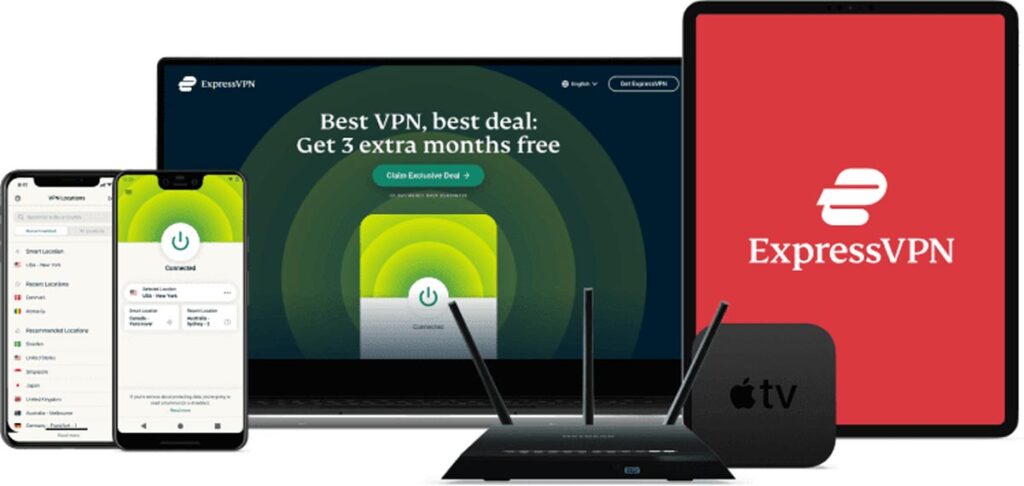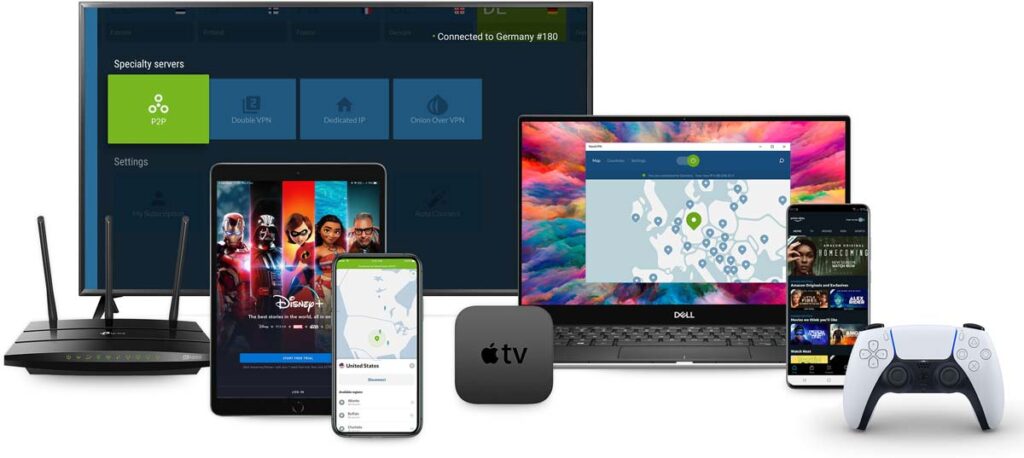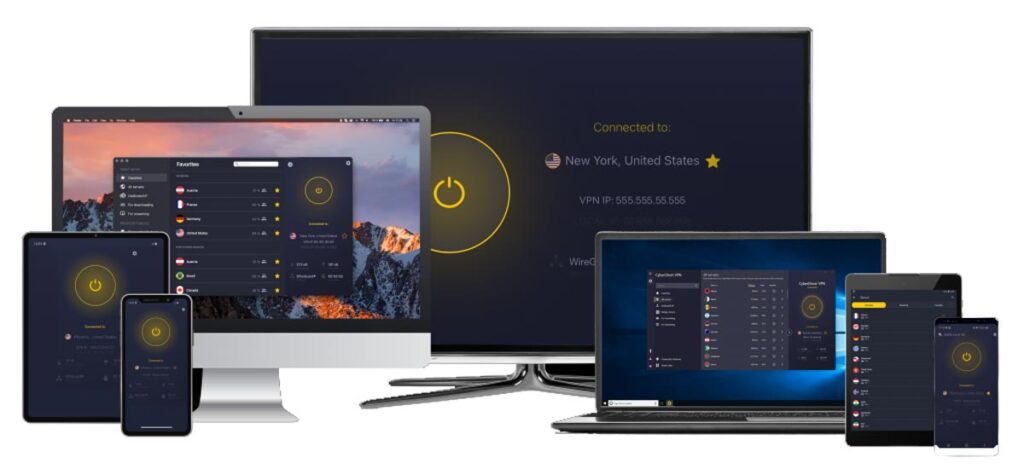How to Choose the Best VPN for You In 2024?

Certain VPNs are more effective than others at particular tasks. Some services just don’t work well at all, whether it’s because of poor security safeguards, unreliable servers, or excessively slow speeds. Worse yet, rather than safeguarding your privacy, certain VPNs are logging and exchanging user data.
We’ve prepared a rundown of the most crucial elements to take into account when selecting a VPN in order to assist you in making the best VPN choice. A dependable server network, quick speeds, and other characteristics are among these.
We also cover some of the best VPN services currently on the market, with ExpressVPN as our top pick. It outperformed the 200+ VPNs we regularly evaluate in terms of speed, dependability, security, and privacy.
While ExpressVPN succeeds in each of these areas, the majority of rival VPNs only do well in one or two of them. Additionally, you may quickly receive a refund if you’re not satisfied because it is supported by a 30-day money-back guarantee.
Best VPNs Overview:
In a hurry and what to know the summary? Here are the 3 best VPNs for your convenience!
- ExpressVPN: The best VPN altogether with lightning-fast servers for uninterrupted streaming and torrenting and reliably dependable access to geo-restricted content worldwide.
- NordVPN: One of the best VPNs with the best speeds and minimal log policy, due to being located in Panama. Great for bypassing geo-restrictions.
- CyberGhost: Simple unblocking of your preferred streaming services with user-friendly apps and streaming-optimized servers. However, its long-distance connections might take a while.
How To Choose The Best VPN For You?
Choosing a VPN that meets all your needs as well as is pocket-friendly can be a daunting task, especially if you are not very knowledgeable in this field.
You will find a detailed explanation of how to choose the best VPN according to your needs and preferences.
1. Decide why you require a VPN
Knowing what you’re intending to use a VPN for in particular is vital because certain VPNs are better than others at specific tasks. If you’re unfamiliar with them, your first step should be to learn how a VPN works.
Fast speeds are essential if you download or stream a lot. If privacy and security are your top priorities, pick a service with a no-logs policy that has been independently confirmed and strong encryption.
When you are certain of the purposes for which you will use a VPN, compile a list of the features you must have and others you can manage without. You will find it a lot simpler to choose which VPN to utilize if you do so.
2. Search for a VPN that provides good speeds.
Find a VPN that gives fast speeds if you do not wish to continuously experience delays and slowdowns on your network.
Your internet speed will be somewhat impacted by a VPN because it takes a while for your traffic to flow via the VPN server and be encrypted. However, the top VPNs won’t significantly slow down your connection.
To guarantee you’ll obtain quick speeds, some of the important features to watch out for in a VPN are:
- Special features that boost your speed: The flexibility to choose the amount of security (military-grade encryption isn’t actually required for just viewing Netflix, for example), the usage of customized servers for particular use cases (such as gaming or torrenting), or even split tunneling, which lets you elect to only send data from specific applications through the VPN server, are some examples.
- Rapid VPN protocols: Some VPN protocols are significantly quicker than others, as I mentioned in the table above. Without compromising your security, Lightway and WireGuard offer very high performance.
- Results derived from speed tests: Utilizing internet speed test tools while connected is the only way to obtain an actual estimate of the speeds you can anticipate from any specific VPN. Assess your download and ping speeds to the outcomes of speed tests performed on your ordinary internet. Fortunately, all of the VPNs listed below have a money-back guarantee, allowing you to test their speeds without risk.
ExpressVPN has incredibly fast connections; during my speed testing, I only noticed a 5% decrease from my connection’s base speed. Its impressive proprietary Lightway protocol is perhaps part of the reason for this.
3. Check that your VPN has excellent privacy and safety features.
A VPN is probably not performing as intended if it doesn’t offer solid security features or isn’t upfront about its privacy practices.
VPNs should, at the very least, contain the following characteristics because they are designed to safeguard your online privacy:
- Stringent no-logs policy: A VPN should promise not to record your surfing history or personal information. This claim should be independently verified by a third-party audit to ensure that it can be believed. Furthermore, the vendor of your service should regularly delete all data from its servers. ExpressVPN, for instance, uses RAM-based servers that purge all data upon restarting.
- AES 256-bit military-grade encryption: It is the toughest available and is used by banks and the defense to protect the privacy of highly classified information.
- A broad variety of security measures: The most reliable (and swiftest) protocols available at the moment should be supported by your VPN. These include OpenVPN, WireGuard, and Lightway protocol. By having options, you can customize your connections to suit your preferences.
- Protection against leaks and an automatic kill switch: Both of them shield your browsing history and the genuine IP address from prying eyes. Even if your VPN should disconnect for whatever reason, the kill switch guarantees this.
- Additional privacy and safety features: Some VPNs go above and above by providing more privacy security. You can safely avoid tight government censorship by employing server obfuscation, which masks the fact that you’ve been using a VPN. Another illustration is multi-hop, which encrypts your communication twice and routes it all through two VPN servers for added protection.
- Privacy-friendly jurisdiction: Some countries might try to force a VPN provider to turn over user information. There is a higher risk of this with VPNs that have servers located in countries that are a part of the 5/9/14-Eyes Alliances, involved in monitoring. As long as the service provider has a confirmed no-logs policy, this should not be an issue.
The VPN protocol you choose is extremely crucial. Each of them can vary not only in terms of overall security but also in terms of speed and dependability.
4. Opt for a VPN with a reliable network of servers
Make sure the VPN you use actively manages a sizable server network. For the following reasons, a dependable server network is essential:
- A vast number of working servers: If your VPN just has a few operational servers, these servers will quickly fill up with users. Everyone connected may experience sluggish speeds and instability as a result.
- Unblocking geo-restricted content: You’ll need your VPN to provide a server in the target region if you want to use any streaming service’s library from another region. Even better, some VPNs have streaming-optimized servers that regularly permit access to nearby libraries. Many regional libraries throughout the world are reliably unblocked by ExpressVPN’s 3,000+ servers in 105 countries, which also provide lightning-fast speeds.
- Gaming: You require a VPN that can provide dependable nearby servers to your location for secure gaming. You will have the lowest ping and the least amount of lag if you do this. Similar to streaming, some VPNs feature gaming-specific servers.
In addition to the aforementioned, be careful to pick a VPN that does regular server upkeep. Bug patches, software updates, hardware upgrades, IP updates, and server restarts fall under this category.
All of this guarantees consistent performance and unhindered access to geo-restricted websites like Netflix, BBC iPlayer, Hulu, and others.
5. Hassle-free setup and easy-to-use
Choose a VPN that offers apps for the majority of current gadgets. You will be able to quickly and conveniently install the VPN on all of your gadgets, including Windows, Android, iOS, macOS, and others, in this method.
Configuring the VPN could be a problem if the device you plan to use it on doesn’t have an app for it. Additionally, your VPN should have an intuitive user interface and arrive already set up and functional. You can quickly connect to a server with this.
6. Multiple Device Connections
You do not need to unplug one device to make way for another because numerous devices should be able to connect to your VPN simultaneously.
For instance, Express enables you to connect 8 devices at once. This is useful, especially if you live in a big house or have a lot of gadgets.
As an alternative, you might search for a VPN that works with routers. You can make sure your VPN is enabled on every device in your house that connects to the internet by configuring it on your router.
7. Money-back guarantees and easy payments
Make sure that your VPN Provider allows common payment options like PayPal & credit cards, etc. Look for a VPN that accepts cryptocurrency if anonymity is preferred. By doing so, you can register for the service without giving out any personal payment details.
Additionally, a solid VPN shouldn’t demand that you sign up for a subscription. Choose a supplier who provides a trustworthy money-back assurance. For instance, all plans from ExpressVPN come with a 30-day money-back guarantee.
In this manner, you’ll have the choice to request a refund if the product falls short of your expectations.
8. Customer Support
Select a VPN that provides quick and beneficial customer service, whether through email, contact forms, or round-the-clock live chat. Even the good VPNs can experience issues, so having dependable and knowledgeable support available can be really helpful.
As live chat is available around-the-clock, it is the most practical form of customer service since you can nearly immediately get all of your concerns addressed.
Top 3 VPNs in 2024
We tested a lot of VPNs on basis of speed, security and reliability but found some of the best VPNs we have listed below.
ExpressVPN: Overall best VPN for Security, Speed and Reliability)

✔ Super fast 3,000+ VPN servers in 94 countries
✔ Connect Up to 8 devices simultaneously with one account
✔ Unblock Netflix, VUDU, HBO Max, BBC iPlayer, Sky TV, and more
✔ You can use it on android, window, iPhone, Mac, Apple, Smart TV, Chrome, Router
✔ 30-day money-back guarantee
ExpressVPN offer July 2024: For a limited time, you can save up to 49% on 1-year subscription plan + 3 months free.
NordVPN: Budget-friendly VPN with good security features

✔ 6100+ ultra-fast servers in 74 countries
✔ Connect Up to 6 devices simultaneously with one account
✔ Stream Netflix, VUDU, HBO Max, BBC iPlayer, Sky TV, and more from anywhere
✔ Apps available for android, window, iPhone, Mac, Apple, Smart TV, Chrome, Router
✔ 30-day money-back guarantee
NordVPN offer July 2024: For a limited time, you can save up to 52% at 3.39/month on 2-year subscription plan.
Cyberghost: Optimized Servers for Streaming sites

✔ 11,700+ servers in 100 countries so you can easily access regional content
✔ Connect Up to 7 devices simultaneously with one account
✔ Unblock platforms like Netflix, VUDU, HBO Max, BBC iPlayer, Sky TV and more
✔ Apps available for android, window, iPhone, Mac, Apple, Smart TV, Chrome, Router etc
✔ 45-day money-back guarantee
CyberGhost VPN Exclusive Deal July 2024: For a limited time, you can save up to 84% at $2.03/month on a 2 Years subscription plan + 2 Months FREE
FAQs
Are VPNs safe to use?
Yes, VPNs are safe for the most part. But free ones? Not so much. Your information can be provided to third parties without your knowledge. I will always recommend against using free VPNs.
Can VPN be used on my smart TV?
Yes, you can easily use your VPN on your smart TV if your VPN can be configured to your router.
With ExpressVPN’s exclusive Mediastreamer feature, you can access streaming services right on your smart TV or gaming console. This eliminates the need for a complicated network setup so you can watch geo-restricted content on the big screen.
Is it legal to use a VPN?
Yes, VPNs are legal in most countries. This is due to the fact that it is only a privacy technology designed to increase internet freedom by enabling secure information transmission and reception.
Anything that is unlawful to conduct online is still prohibited with a VPN connection, therefore you must still abide by the law while using one.
Additionally, in other countries such as China and Iran, using a VPN is either prohibited or strictly regulated. We don’t support unlawful activity, therefore be sure to research local VPN regulations to avoid accidentally breaking the law.